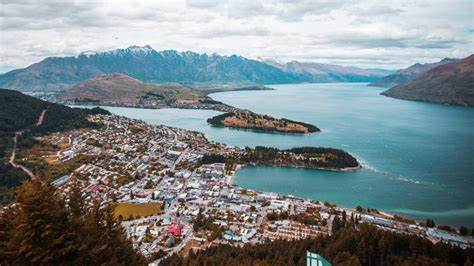Costa Rica, with its stunning beaches, lush rainforests, and diverse wildlife, has long been a top destination for nature lovers and adventure seekers. But beyond its natural beauty, Costa Rica is emerging as a global leader in sustainable tourism, wellness retreats, and eco-adventures. Travelers seeking an immersive experience in harmony with nature are flocking to this Central American gem, where sustainability, wellness, and adventure intersect in the most extraordinary ways.
Sustainability has been at the heart of Costa Rica’s tourism industry for many years. As one of the world’s most biodiverse countries, Costa Rica is committed to protecting its ecosystems, and eco-tourism is a cornerstone of the nation’s approach to tourism. From the cloud forests of Monteverde to the pristine beaches of the Osa Peninsula, the country has created numerous national parks and reserves to safeguard its diverse flora and fauna. Eco-lodges, such as those in Tortuguero and Corcovado National Park, offer visitors the opportunity to experience the country’s natural wonders while minimizing their environmental impact. These eco-lodges often use renewable energy, compost organic waste, and support local conservation efforts, ensuring that tourism contributes positively to the environment. By choosing eco-friendly accommodations and tours, travelers can enjoy Costa Rica’s natural beauty while helping to preserve it for future generations.
In addition to its focus on sustainability, Costa Rica has become a wellness tourism hotspot, attracting visitors seeking relaxation and rejuvenation in the midst of nature. With its serene landscapes, hot springs, and pristine beaches, Costa Rica provides the perfect setting for wellness retreats. In places like Nosara and the Nicoya Peninsula, wellness resorts offer yoga, meditation, detox programs, and spa treatments that draw on the country’s holistic approach to well-being. The wellness philosophy in Costa Rica combines modern relaxation techniques with traditional healing practices, such as herbal medicine and massage therapies. The focus on mind-body balance is complemented by the country’s laid-back lifestyle, where visitors can disconnect from the stresses of daily life and embrace a slower pace of living.
Adventure tourism is another major draw in Costa Rica, and it has evolved to meet the growing demand for sustainable and immersive experiences. Costa Rica is known for its abundance of outdoor activities, from zip-lining through the jungle canopy to white-water rafting on the Pacuare River. But these adventurous pursuits are now often paired with eco-conscious practices, ensuring that visitors can enjoy the thrills of the great outdoors while protecting the environment. For example, guided hikes through national parks and wildlife reserves provide travelers with the chance to observe Costa Rica’s incredible biodiversity, including rare species like the jaguar and the resplendent quetzal, while ensuring that the habitats remain undisturbed. Additionally, many of Costa Rica’s adventure operators are involved in conservation efforts, such as sea turtle nesting programs on the Pacific coast, where visitors can participate in turtle releases and help preserve endangered species.
The slow travel movement is also gaining traction in Costa Rica. Rather than rushing through multiple destinations, many travelers are choosing to stay longer in one region, allowing them to connect more deeply with the culture and environment. Costa Rica’s smaller towns and rural areas are becoming popular for slow travelers looking to immerse themselves in the local way of life. In places like Samara and Montezuma, visitors can spend days exploring quiet beaches, hiking through the rainforest, or learning about local farming and sustainable practices. Staying longer in one place not only provides a more authentic experience but also supports the local economy and reduces the carbon footprint associated with constant travel.
Costa Rica is also becoming increasingly popular among digital nomads. With its affordable cost of living, fast internet connections, and a growing network of co-working spaces, the country has become a haven for remote workers. Areas like Santa Teresa and Puerto Viejo offer a perfect blend of work and play, where digital nomads can enjoy surfing on the Pacific coast, exploring lush jungles, and working from modern co-working spaces that offer the flexibility to work from paradise. The combination of reliable infrastructure, stunning natural surroundings, and a welcoming expat community has made Costa Rica one of the best destinations for remote workers seeking a balanced lifestyle.
In terms of technology, Costa Rica is embracing the digital age to enhance the travel experience. Apps and online platforms allow visitors to easily find eco-friendly accommodations, book tours with sustainability in mind, and even access virtual wildlife tours. Travelers can learn about Costa Rica’s conservation efforts and book eco-tours before their trip, ensuring that their visit aligns with their values and supports responsible tourism.
Costa Rica’s commitment to sustainability, wellness, adventure, and slow travel makes it a destination that offers more than just beautiful beaches and exotic wildlife—it provides an opportunity to engage meaningfully with nature, culture, and well-being. Whether it’s hiking through lush rainforests, indulging in a wellness retreat, or embarking on an eco-adventure, Costa Rica offers a diverse and enriching travel experience that caters to the modern traveler looking for connection, adventure, and sustainability. For those seeking a destination that prioritizes the health of the planet and the traveler, Costa Rica is a shining example of how travel can be both enjoyable and responsible.






